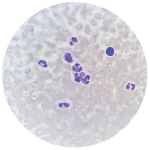
Nonnakrit / SHUTTERSTOCK.COM
SAN DIEGO—Treatment strategies for systemic lupus erythematosus (SLE) have changed a great deal over the years, but progress has been slow and inadequate. According to a 2011 survey, many patients with lupus still report that they have a low quality of life due to their health problems.1
Rheumatologists face the challenge to develop more successful therapeutic approaches and outcomes in these patients, said Ronald van Vollenhoven, MD, director of the Amsterdam Rheumatology and Immunology Center in The Netherlands. He shared the latest efforts by lupus researchers to shape a useful treat-to-target paradigm and definition of remission in SLE on Nov. 7 at the 2017 ACR/ARHP Annual Meeting.
New Biologic Option
Cyclophosphamide remains the pillar of treatment for severe lupus or lupus nephritis, but a low-dose protocol has now largely replaced the older, high-dose approach, he said.2 Belimumab, another lupus therapy approved in recent years, can be a safe, effective, steroid-sparing option for certain patients.3
Rheumatologists must still ask themselves if we are doing enough to improve the lives and long-term outcomes for lupus patients, he said. “Increasingly, we see that the most severe complications may be avoided for many of our patients. But something is still missing.”
According to the 2011 survey, which was conducted by a health economist in Sweden, lupus patients reported that they have a similar health-related quality of life as patients with late-stage chronic pulmonary obstructive disease (COPD) or cancer, said Dr. van Vollenhoven.
“This study reflects that some patients have a very poor quality of life. So our average result for treating lupus is still not very good. It is an expensive disease due to direct and indirect costs. How can we do better? One way is to develop better medications, and we always want that. But we can’t sit around and wait for that to happen.” Excitement reigns when new therapies emerge, but that enthusiasm can wane when treatments don’t prove as successful as we hoped, he said. “What we are trying to achieve is to use the existing therapies in a better way and to develop better strategies [for] how to use them.”
Refined Treatment Targets
Better outcomes may come from the development of a treat-to-target paradigm for SLE, he said. Treat-to-target approaches often follow this path: Identify a target for each patient to achieve, intervene with therapy, determine along with the patient when it is time to reassess the treatment plan, and then, if a target is not met, modify the intervention. The treat-to-target approach has been used in hypertension, a relatively simple condition to manage, and is widely used in the management of rheumatoid arthritis.4 Will it work in lupus, which is much more complex?

